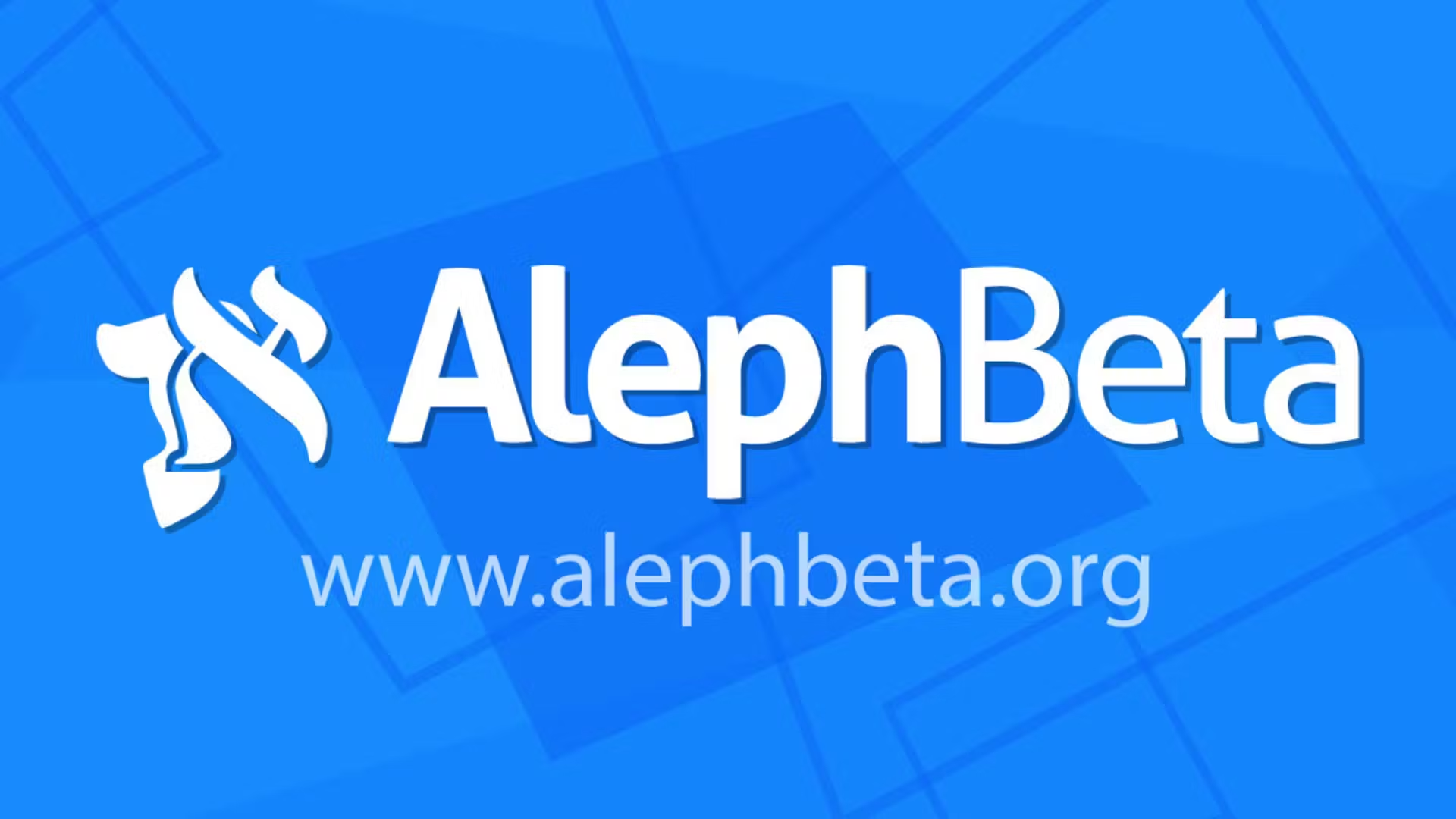
D’var Torah on Parshat Bechukotai
What Kind of God Would Curse His People?
BY Evan Weiner | March 8, 2024 | 5 Minute Read
D’var Torah on Parshat Bechukotai
Blessings and Curses
In Parshat Bechukotai God presents us with a vivid and chilling choice between receiving tremendous blessings or incurring horrific curses. Essentially what God says is, keep the mitzvot and all will be good, and if not, you’ll experience terrible starvation, diseases, destruction, exile, and death. God is really laying down the gauntlet and making some pretty serious threats. It’s a hard parsha to read, not just because of the scary curses, but because of the image this paints of God.
Is God trying to scare us into submission?
I don’t know about you, but for me, reading this kind of ultimatum conjures up images of the schoolyard bully threatening to beat me up if I don’t hand over the lunch money. It’s not the kind of thing that makes me feel like God is our loving Father-in-Heaven. Is this the kind of God you want to build a relationship with? I mean, when it comes to that schoolyard bully, I would rather avoid him at all costs and hope he never comes looking for me. But aren’t we supposed to want to have a close relationship with God and to “love the Lord your God, walk in His ways, and cling to Him” (Deut. 11:22)? So why does the Torah throw in sections like these curses that make us not want to have anything to do with God? How are we meant to develop that kind of loving bond with God, if He acts like a big bully who is trying to scare us into submission?
Looking at the Torah’s explanation
If we want to figure that out, then we have to look a little more closely at how God spells out why we would potentially get these curses. God introduces the blessings and curses by saying (Leviticus 26:3), “אִם־בְּחֻקֹּתַי תֵּלֵכוּ וְאֶת־מִצְוֺתַי תִּשְׁמְרוּ וַעֲשִׂיתֶם אֹתָם” – “If you will follow My statutes, keep My mitzvot, and do them” then all the good stuff will happen , but, “וְאִם־בְּחֻקֹּתַי תִּמְאָסוּ וְאִם אֶת־מִשְׁפָּטַי תִּגְעַל נַפְשְׁכֶם לְבִלְתִּי עֲשׂוֹת אֶת־כׇּל־מִצְוֺתַי” – if you reject My statutes and spurn My laws by not doing all My commandments” then all these terrible things will happen (Leviticus 26:15).
When you read this language, doesn’t it seem evidently clear that God is saying that you must keep ALL the mitzvot, otherwise you’re in trouble – if you leave out just a few, then forget about the blessings? It seems pretty straightforward, right? But the problem is, when you keep reading the parsha, there is one mitzvah that gets singled out, one mitzvah that gets named explicitly as the one for which God seems to be taking retribution through these curses. The Torah says:
אָז תִּרְצֶה הָאָרֶץ אֶת־שַׁבְּתֹתֶיהָ כֹּל יְמֵי הׇשַּׁמָּה וְאַתֶּם בְּאֶרֶץ אֹיְבֵיכֶם אָז תִּשְׁבַּת הָאָרֶץ וְהִרְצָת אֶת־שַׁבְּתֹתֶיהָ׃ כׇּל־יְמֵי הׇשַּׁמָּה תִּשְׁבֹּת אֵת אֲשֶׁר לֹא־שָׁבְתָה בְּשַׁבְּתֹתֵיכֶם בְּשִׁבְתְּכֶם עָלֶיהָ׃
Then the land will make up for its sabbath years throughout the time that it is desolate and you are exiled in the land of your enemies; then the land will rest and make up for its sabbath years. Throughout the time that it is desolate, it shall observe the rest that it did not observe in your sabbath years while you were dwelling upon it.
This is the mitzvah of Shemittah. This mitzvah gets singled out as the one for which the land is getting paid back. It is due to Israel’s disregard for Shemittah that all this bad stuff will happen. But the obvious question is why is this mitzvah the one that gets an honorable mention? Why does this mitzvah move to the top of the list of 613 mitzvot so much so that life and death depends on it?
Finding a clue
There is a very interesting clue found in a Midrash quoted by Rashi (Leviticus 26:12). The Midrash is commenting on God’s promise that if we walk in His ways, then “וְהִתְהַלַּכְתִּי בְּתוֹכְכֶם” - “[God] will walk among you.” The Sages of the Midrash explain what God is saying here. They say God promises that if you walk in God’s ways, then, “אֲטַיֵּל עִמָּכֶם בְּגַן עֵדֶן” – “[God] will stroll with you in the Garden of Eden.” But wait a second…Who said anything about the Garden of Eden? This is Leviticus, not Genesis! What does the Garden of Eden have to do with these curses in Parshat Bechukotai? Why would the Sages make such a weird statement?
It turns out that this parsha is actually full of allusions to the Garden of Eden. In this video Rabbi David Fohrman suggests that those allusions hold the key to understanding why Shemittah gets singled out. And when we can unlock that mystery, we’ll discover that that dramatic choice between blessings and curses God gives us is not Him acting like a threatening bully, it’s actually a sign of deep love and connection with the Almighty. Watch now to see how. Subscribe to Aleph Beta to add meaning to your Shabbat and be inspired by the beauty of the Torah.
Parshat Bechukotai in a Nutshell
Parshat Bechukotai contains the “Tochacha” (admonition), which is essentially a series of curses that will befall the Jewish people if they do not follow God’s commandments. This frightening warning is followed by God promising that He will never forsake His people and will always remember His covenant with the forefathers. The parsha, and the Book of Leviticus, concludes with a collection of laws about gifts to the Temple, redeeming animals, houses, and fields donated to the Temple, and tithes.
More Parshat Bechukotai Videos

Can We Truly Walk Closely With God?
Video • 9 min
In Leviticus, the Torah suggests to us that if we follow God's will, we will be rewarded with walking with God – with the same language as the Garden of Eden. Rabbi Fohrman speaks this week about the loving, joyful moment of togetherness with God.

What Is The Book Of Leviticus Really About?
Video • 12 min
The book of Leviticus is tough - no narrative, and really difficult topics - for instance, how do we relate to holiness, purity and sacrifice in the 21st century? In this week's video for Vayikra (Leviticus 1:1-5:26), we will learn how to read the perplexing book of Leviticus.
Parshat Bechukotai Pages
What is Aleph Beta?
Aleph Beta is a unique kind of Torah library. Led by our founder, Rabbi David Fohrman, we are dedicated to high-level, textual Torah learning for adults that is intellectually and spiritually sophisticated, that enlivens your Jewish practice and helps you forge a deeper connection to God. Whether you’ve been learning in yeshiva for years or you’re just beginning your Torah journey, you’re sure to find something meaningful and surprising waiting for you here.
Browse our library of over 1,000 beautifully produced animated videos, podcasts, deep dive courses, and printable guides. Topics include the weekly parsha, Jewish holidays & fast days, laws & mitzvot, prayers, relationships, big philosophical ideas and more. Have something to say at the Shabbos table that will amaze your family and guests and bring deep meaning into their lives.



